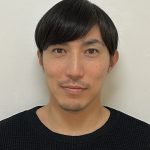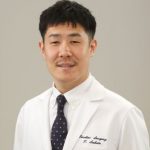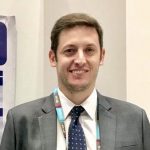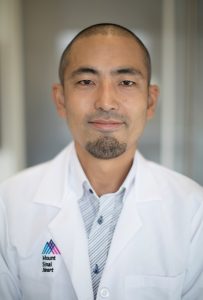 Kiyotake Ishikawa received his MD from the Nagoya University in 2002. Within 8 years of working as a cardiologist in Japan, he completed his fellowship in interventional cardiology and obtained board memberships in both internal medicine and cardiology. Kiyo moved to the US in 2009 and started his research career in the field of cardiac gene therapy with intent to approach cardiovascular diseases from more fundamental level through basic science. He was promoted to Assistant Professor in 2013 and to Associate Professor in 2022 at the Icahn School of Medicine at Mount Sinai.
Kiyotake Ishikawa received his MD from the Nagoya University in 2002. Within 8 years of working as a cardiologist in Japan, he completed his fellowship in interventional cardiology and obtained board memberships in both internal medicine and cardiology. Kiyo moved to the US in 2009 and started his research career in the field of cardiac gene therapy with intent to approach cardiovascular diseases from more fundamental level through basic science. He was promoted to Assistant Professor in 2013 and to Associate Professor in 2022 at the Icahn School of Medicine at Mount Sinai.
Kiyo’s research focuses on clinical translation of novel therapeutic approaches using large animal models. These large animal models also offer studies examining disease mechanisms, physiology, diagnostic imaging and therapeutic interventions in a clinically relevant manner.
Available for presentations/seminars on following topics: Cardiac gene therapy and delivery, Acute mechanical cardiac unloading for LV failure, Large animal models of cardiac diseases
E-mail: kiyotake.ishikawa@mssm.edu
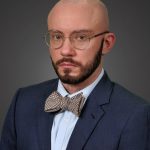 Spyros Mavropoulos received both his MD and PhD from the Zucker School of Medicine at Hofstra University. Pursuing his long-time interest in cardiovascular medicine, he studied the effects of stimulating the cholinergic system on reperfusion injury after acute MI for his thesis. Dr. Mavropoulos has several years of experience in rodent surgery and molecular biology techniques, and now seeks to shift his research in a more translational direction. He joined the Ishikawa Lab in June 2021 where he is investigating cardiac remodeling genes involved in heart failure and type 4 cardiorenal syndrome. Email: spyros.marvopoulos@mssm.edu
Spyros Mavropoulos received both his MD and PhD from the Zucker School of Medicine at Hofstra University. Pursuing his long-time interest in cardiovascular medicine, he studied the effects of stimulating the cholinergic system on reperfusion injury after acute MI for his thesis. Dr. Mavropoulos has several years of experience in rodent surgery and molecular biology techniques, and now seeks to shift his research in a more translational direction. He joined the Ishikawa Lab in June 2021 where he is investigating cardiac remodeling genes involved in heart failure and type 4 cardiorenal syndrome. Email: spyros.marvopoulos@mssm.edu
Kenji Watanabe received his MD from The University of Tokyo (Japan) in 2013. He worked as an anesthesiologist for about 9 years in Japan before pursuing a career in research. He obtained board certification in cardiovascular anesthesia in 2021. His interests focus on understanding hemodynamics using a physiological approach. He engaged in clinical research related to the correlation between echocardiography and indexed flow in patients with a left ventricular assist device during his tenure at the National Cerebral and Cardiovascular Center in Japan. He joined the Ishikawa Lab in September 2023 and has now shifted his focus to preclinical translational investigations. Email: kenji.watanabe@mssm.edu
Genya Sunagawa received his Bachelor of Economics from Waseda University in 2004 and received MD from Kagoshima University in 2011. He worked as a residency at Toranomon Hospital from 2011-2014. After he received his PhD degree at Kyushu University in 2018, where he worked mainly in Emergency Medical Services for about 4 years. He obtained board certification for cardiology in 2022. He moved to the US and started his research related to MCS at Tufts medical center in 2023. He joined in Ishikawa Lab in 2024. Email: genya.sunagawa@mssm.edu
Samta Veera holds a Bachelor’s in Biotechnology and a Master’s in Neuropsychology from India. After working as a Scientific Officer at a diagnostic lab for a year, she pursued a Master’s in Biomedical Sciences at Rutgers University, where she developed a keen interest in cardiovascular research while working in the Sadoshima lab. Currently, she is eager to deepen her knowledge of cardiovascular diseases and translational research in the Ishikawa Lab, applying her background in molecular biology and continuously learning to make meaningful contributions in this field. Email: samta.veera@mssm.edu
Ni-Hsuan Lin received her B.S. in Biomedical and Life Sciences from Utrecht University in the Netherlands in 2024. Her undergraduate research explored potential therapeutic strategies to reduce the side effects of chemotherapy on the lungs and kidneys. Ni-Hsuan’s passion for cardiac diseases and treatments began during her internship at the cardiology department of Coast General Teaching and Referral Hospital in Kenya. She is dedicated to contributing to advancements in cardiovascular research and medicine. She is currently pursuing a Master’s in Biomedical Science at the Icahn School of Medicine at Mount Sinai. Email: ni-hsuan.lin@icahn.mssm.edu
Kyra Leonard received her B.S. in Behavioral Neuroscience from Northeastern University in 2018. During her undergraduate studies, she was fortunate to work in various labs studying neurobiology, including the Melloni Aggression Lab (Northeastern University), Glickfeld Lab (Duke University), Silvia Arber Lab of Cell Biology (Basel University), as well as study immunology in the context of cancer cell therapy at Sana Biotechnology. She is currently in her second year of medical school at New York Medical College in Valhalla, NY. Email:kyra.manayan-leonard@mssm.edu
Previous members
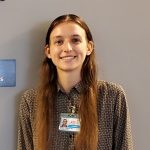 Renata Mazurek completed her MD at the Medical School for International Health at Ben-Gurion University in Israel, followed by her first postdoctoral fellowship at the Yale Cardiovascular Research Center where she studied pathophysiologic mechanisms of pulmonary hypertension development. She is committed to impacting cardiac patient care through the expansion of translational research, particularly in the areas of heart failure and the chronic management of heart disease. She is now engaged in pediatric cardiology research
Renata Mazurek completed her MD at the Medical School for International Health at Ben-Gurion University in Israel, followed by her first postdoctoral fellowship at the Yale Cardiovascular Research Center where she studied pathophysiologic mechanisms of pulmonary hypertension development. She is committed to impacting cardiac patient care through the expansion of translational research, particularly in the areas of heart failure and the chronic management of heart disease. She is now engaged in pediatric cardiology research
 Deanndria Singleton received her B.S in Biological Sciences with a concentration in Neurobiology & Behavior and Distinction in Research from Cornell University in 2022. During her undergraduate studies, she was a HHMI-CURT research scholar and Biological Sciences Honors Recipient where she completed a senior thesis on coronavirus emergence and evolution in human and rodent coronaviruses. While working as a Research Technician at Weill Cornell Medicine, she was introduced to the field of Cardiovascular Research while studying Obesity and its effects on Atrial Fibrillation. As an Associate Researcher in the Ishikawa lab and aspiring Physician-Scientist, she is looking forward to combing her background in Virology and Cardiovascular Research to learn more about Cardiac Gene Therapy and its clinical relevance.
Deanndria Singleton received her B.S in Biological Sciences with a concentration in Neurobiology & Behavior and Distinction in Research from Cornell University in 2022. During her undergraduate studies, she was a HHMI-CURT research scholar and Biological Sciences Honors Recipient where she completed a senior thesis on coronavirus emergence and evolution in human and rodent coronaviruses. While working as a Research Technician at Weill Cornell Medicine, she was introduced to the field of Cardiovascular Research while studying Obesity and its effects on Atrial Fibrillation. As an Associate Researcher in the Ishikawa lab and aspiring Physician-Scientist, she is looking forward to combing her background in Virology and Cardiovascular Research to learn more about Cardiac Gene Therapy and its clinical relevance.
Jonas Marx obtained both his MD and MS in Molecular Medicine from the Friedrich-Schiller-University, Jena, Germany in 2019. He worked as a resident in the Department of Cardiothoracic Surgery at the University Hospital of Jena, Germany, before joining the Internal Medicine Residency Program at Mount Sinai Morningside/West in 2021 in pursuit of a subsequent fellowship in cardiology. His research during medical school in the lab of Dr. Torsten Doenst, MD, PhD, focused on sepsis-induced alterations of cardiac substrate oxidation using rat heart perfusion. From 2016-2017, he joined Dr. E. Douglas Lewandowski’s lab at Sanford Burnham Prebys Medical Discovery Institute in Orlando, Florida, where he expanded on his investigations of cardiac metabolism in various rodent models. More recently, Dr. Marx worked on a clinical research project exploring risk stratification in tricuspid valve surgery.
Tomoki Sakata received his MD from Chiba University (Japan), and finished the senior residency training in cardiovascular surgery at the University Hospital and affiliated hospitals. He obtained board certification for cardiovascular surgery in 2020. He has engaged in clinical research related to the tricuspid valve and right ventricular function throughout the residency. He also investigated cardioprotective effects of cytokine on ischemia/reperfusion injury in heart transplantation rat model. Tomoki started his cardiothoracic surgery fellowship at Thomas Jefferson.
Anjali J. Ravichandran received her B.S. in Biochemistry and Molecular Biology from University of Miami in 2020. She has completed basic and chemical genetics research at Miller School of Medicine, and translational research with Columbia University’s Department of Surgery, Division of Cardiac, Thoracic and Vascular Surgery to improve transplant outcomes. She also has experience in population and public health research. She is currently involved in research investigating the molecular mechanisms of right heart dysfunction in large animal models of pulmonary hypertension. Throughout her education and research, she is committed to bridging the gap between benchwork research and their clinical applications to address heart failure and cardiovascular diseases.
Francisco Romeo received his MD degree from the Instituto Universitario Hospital Italiano, Buenos Aires, Argentina in 2010. After 5 years of medical training, he finished both Cardiology residency program and Chief Resident position at Hospital Italiano de Buenos Aires, achieving board certification in Cardiology. In 2016, he joined the Pauley Heart Center at the Virginia Commonwealth University under the mentorship of Dr. Fadi Salloum, PhD, where he learned molecular cardiology, mice and rabbit surgery focusing on ischemia-reperfusion injury as well as animal cardiac imaging focusing on LV function post-MI. In 2017, Dr. Romeo came back to Argentina and finished a 3-year Interventional Cardiology fellowship training under the supervision of Dr. Daniel Berrocal, MD, PhD at Hospital Italiano de Buenos Aires. Finally, he started his residency in Internal Medicine at Mount Sinai West & Morningside in 2020. Parallel to his residency, he started his career as a research fellow at Cardiovascular Research Institute at Mount Sinai since 2021. His research focuses on the impact of LV unloading post-MI using large animal models and the implications on the prevention of heart failure development through novel gene expression analysis. Email: francisco.romeo@mountsinai.org
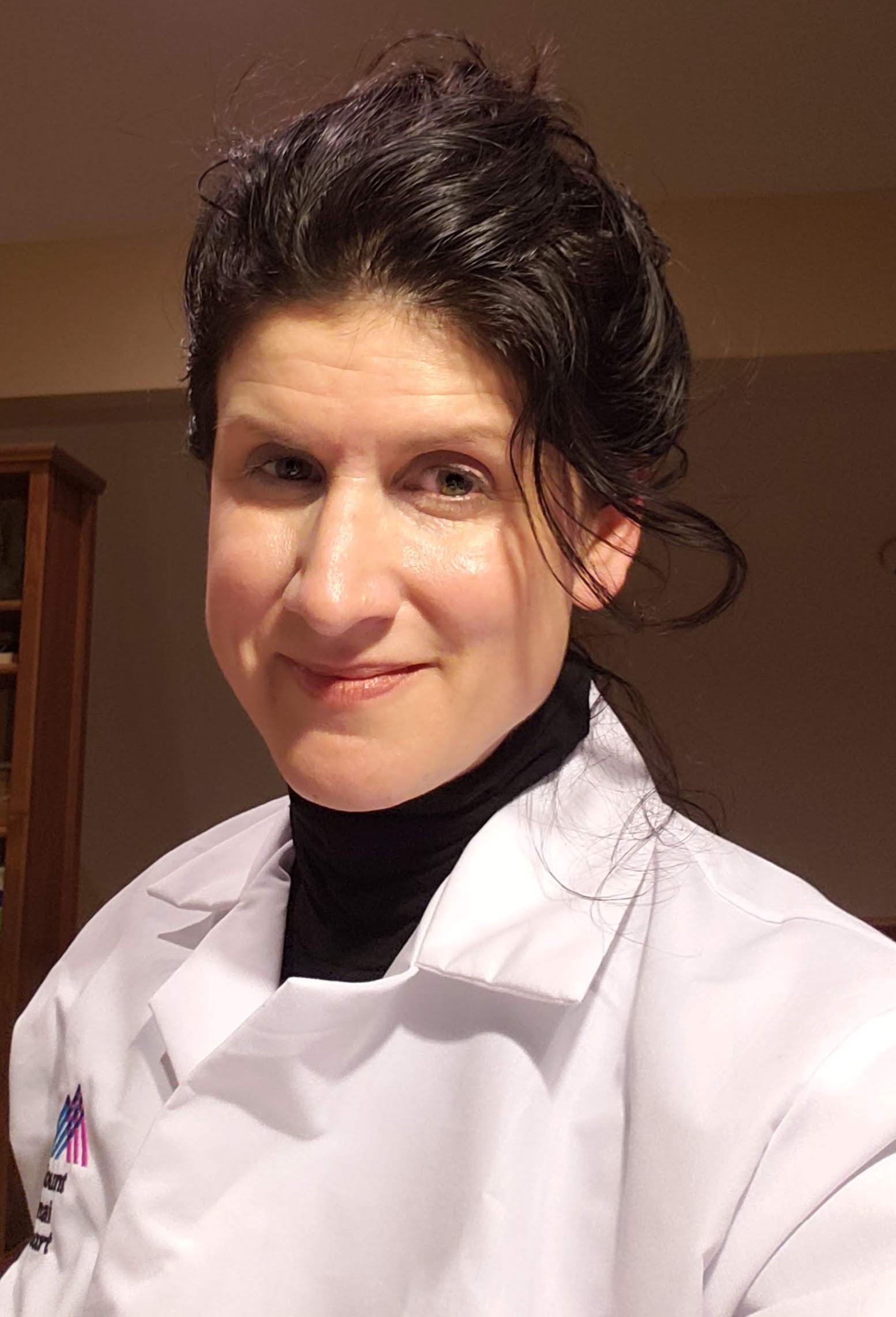 Kelly Yamada received her VMD from the University of Pennsylvania School of Veterinary Medicine in 2002. Prior to veterinary school, she was introduced to cardiovascular research as an undergraduate student of Biomedical Engineering at the Johns Hopkins University where she was a member of the laboratory of Dr. Artin Shoukas. In 2003, Kelly began a research postdoctoral fellowship in the laboratory of Dr. Seiryo Sugiura at the University of Tokyo using functional assays of isolated cardiomyocytes. Upon her return to the United States, she worked in preclinical Safety Assessment in large animal models at GlaxoSmithKline. Kelly subsequently completed a three year postdoctoral fellowship at the Tri-Institutional Training Program in Laboratory Animal Medicine and Science at Memorial Sloan-Kettering Cancer Center, Weill Cornell Medicine, and the Rockefeller University in New York City. She achieved board certification from the American College of Laboratory Animal Medicine in 2011 while employed as a Clinical Veterinarian at the Institute of Comparative Medicine of Columbia University Medical Center. She joined the Cardiovascular Research Center at Mount Sinai under Dr. Roger Hajjar in January 2018. Email: kelly.yamada@mssm.edu
Kelly Yamada received her VMD from the University of Pennsylvania School of Veterinary Medicine in 2002. Prior to veterinary school, she was introduced to cardiovascular research as an undergraduate student of Biomedical Engineering at the Johns Hopkins University where she was a member of the laboratory of Dr. Artin Shoukas. In 2003, Kelly began a research postdoctoral fellowship in the laboratory of Dr. Seiryo Sugiura at the University of Tokyo using functional assays of isolated cardiomyocytes. Upon her return to the United States, she worked in preclinical Safety Assessment in large animal models at GlaxoSmithKline. Kelly subsequently completed a three year postdoctoral fellowship at the Tri-Institutional Training Program in Laboratory Animal Medicine and Science at Memorial Sloan-Kettering Cancer Center, Weill Cornell Medicine, and the Rockefeller University in New York City. She achieved board certification from the American College of Laboratory Animal Medicine in 2011 while employed as a Clinical Veterinarian at the Institute of Comparative Medicine of Columbia University Medical Center. She joined the Cardiovascular Research Center at Mount Sinai under Dr. Roger Hajjar in January 2018. Email: kelly.yamada@mssm.edu
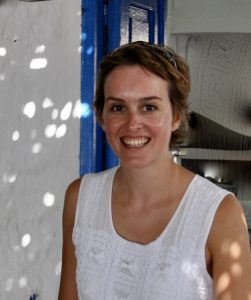
Olympia Bikou studied medicine at the Ludwig- Maximilian University of Munich, University of Heraklion, Greece and the University of Heidelberg, Germany. She received her MD with distinction from the University of Heidelberg 2006. Parallel to her residency at the Cardiology Department at the University of Heidelberg she performed research on large animals, focusing on gene therapy of arrhythmias and heart failure.
In order to get a deeper understanding of molecular and especially microRNA biology, she joined the lab of Stefan Engelhardt at the Technical University of Munich. Since 2017 she has been working at the Cardiovascular Research Center at Mount Sinai under R. J. Hajjar. Her research focuses on microRNA regulation in cardiac diseases and pulmonary hypertension.
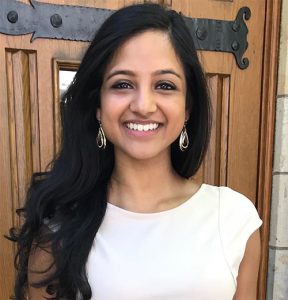 Serena Tharakan received her B.S. in Molecular, Cellular, and Developmental Biology from Yale University in 2018. There, she worked in the lab of Dr. Lloyd Cantley studying the immune response to acute kidney disease. She is currently in her third year of medical school at the Icahn School of Medicine at Mount Sinai.
Serena Tharakan received her B.S. in Molecular, Cellular, and Developmental Biology from Yale University in 2018. There, she worked in the lab of Dr. Lloyd Cantley studying the immune response to acute kidney disease. She is currently in her third year of medical school at the Icahn School of Medicine at Mount Sinai.
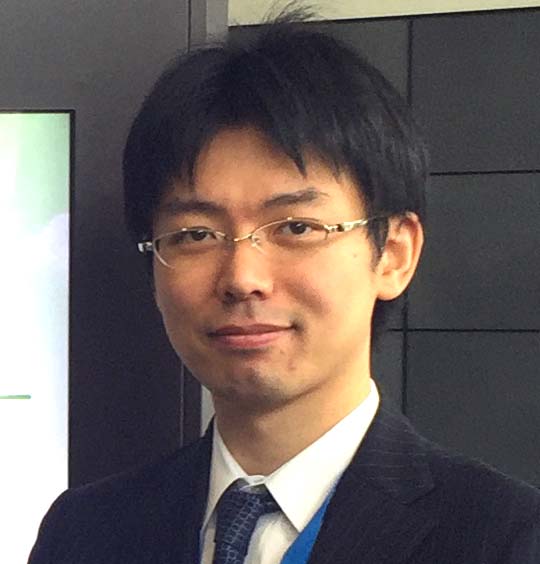 Taro Kariya received his MD from the University of Tokyo, Japan, in 2006. During 12 years of clinical commitment, he achieved three Japanese boards — internal medicine, cardiology, and anesthesiology. In 2012 he joined Eiki Takimoto Lab at the Johns Hopkins University, where he learned molecular cardiology, mouse heart failure model and mouse hemodynamics study. He received his PhD in medicine from the University of Tokyo in 2015. After 3-year Assistant Professor of Anesthesiology at the University of Tokyo Hospital, he joined the Lab in September 2018.
Taro Kariya received his MD from the University of Tokyo, Japan, in 2006. During 12 years of clinical commitment, he achieved three Japanese boards — internal medicine, cardiology, and anesthesiology. In 2012 he joined Eiki Takimoto Lab at the Johns Hopkins University, where he learned molecular cardiology, mouse heart failure model and mouse hemodynamics study. He received his PhD in medicine from the University of Tokyo in 2015. After 3-year Assistant Professor of Anesthesiology at the University of Tokyo Hospital, he joined the Lab in September 2018.
His research focuses on differences in response between the right and left ventricles using various heart disease animal models, hemodynamics using large animals, and preclinical translational investigations.
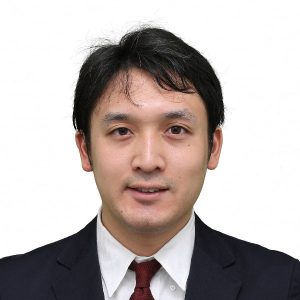 Satoshi Miyashita Dr. Miyashita received his MD from Nippon Medical School in 2015. After two years of residency as a general practitioner in Nippon Medical School Hospital, he started his residency in internal medicine at Mount Sinai Beth Israel Medical Center in 2017. Parallel to his residency, he started his career as a research fellow at Cardiovascular Research Institute at Mount Sinai since 2018. His research focuses on cardiac imaging and uses large animal models of cardiac diseases to investigate the utility and accuracy of various diagnostic approaches and left ventricular assist device use for infarct size reduction in myocardial infarction in animal models.
Satoshi Miyashita Dr. Miyashita received his MD from Nippon Medical School in 2015. After two years of residency as a general practitioner in Nippon Medical School Hospital, he started his residency in internal medicine at Mount Sinai Beth Israel Medical Center in 2017. Parallel to his residency, he started his career as a research fellow at Cardiovascular Research Institute at Mount Sinai since 2018. His research focuses on cardiac imaging and uses large animal models of cardiac diseases to investigate the utility and accuracy of various diagnostic approaches and left ventricular assist device use for infarct size reduction in myocardial infarction in animal models.
Tadao Aikawa received his MD degree from Asahikawa Medic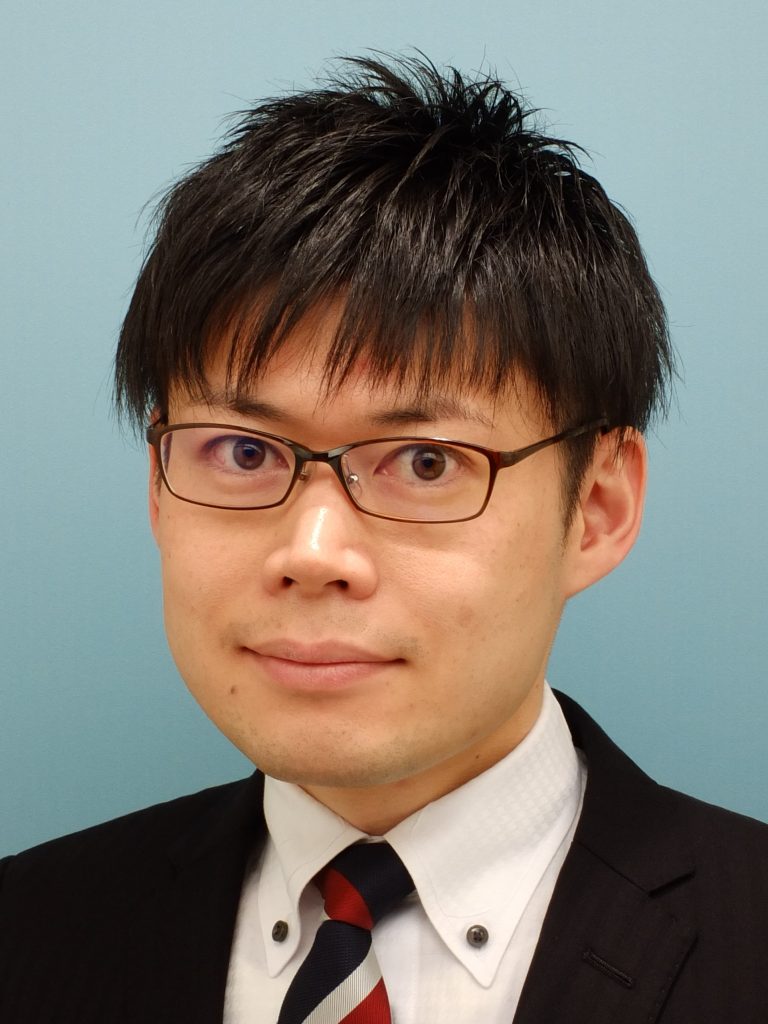 al University, Japan, in 2009. After completing his fellowship in cardiology, he acquired his PhD from Hokkaido University, Japan in 2017, studying noninvasive quantification of myocardial perfusion, fibrosis, and sympathetic nervous innervation using positron emission tomography and cardiac magnetic resonance imaging.
al University, Japan, in 2009. After completing his fellowship in cardiology, he acquired his PhD from Hokkaido University, Japan in 2017, studying noninvasive quantification of myocardial perfusion, fibrosis, and sympathetic nervous innervation using positron emission tomography and cardiac magnetic resonance imaging.
In order to develop translational approaches in quantifying and understanding the mechanisms of cardiovascular disease using a large animal model, he joined the Lab in September 2019. His current research is focused on a novel gene therapy in heart disease animal models.
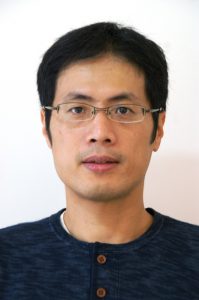
Shin Watanabe received a MD degree from Toyama Medical and Pharmaceutical University of Medicine (Japan) in 2001 and Ph.D. in medical science from Kyoto University (Japan) in 2011. After 10 years of clinical practice as an interventional cardiologist in Japan, Dr. Watanabe joined the Cardiology Laboratory for Translational Research under Dr. Roger J Hajjar in 2015 as a post-doctoral research fellow.
His work involves research in translational gene therapy in large animal models of heart failure. Multiple heart failure models including aortic constriction, acute myocardial infarction, chronic coronary occlusion, and mitral valve regurgitation are created, followed by gene therapies using viral and non-viral vectors. As such, Dr. Watanabe’s focus is on bridging novel therapeutic tools from basic biological research to bedside applications.


